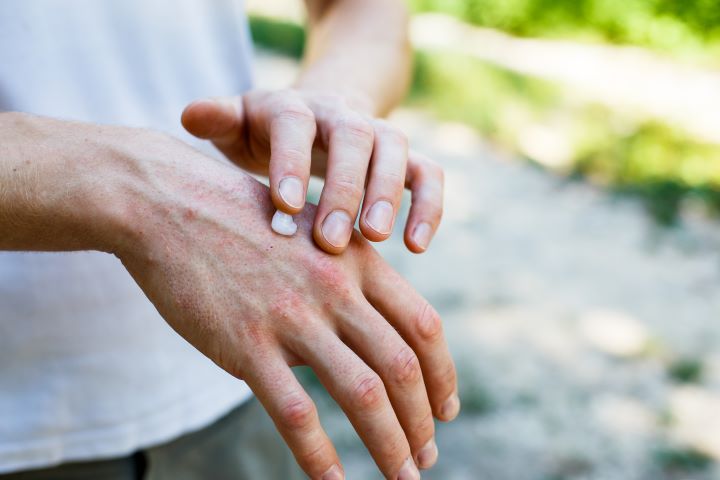Soothe Eczema Flare-Ups with Gentle Care and Smart Cream Choices
Living with eczema means navigating unpredictable flare-ups that can disrupt daily life. This chronic skin condition, characterized by itchy, inflamed patches, affects millions worldwide. While there's no permanent cure, understanding proper skin care techniques and selecting appropriate treatments can significantly reduce symptoms and improve quality of life. The right combination of gentle routines and effective products can make all the difference in managing this challenging condition.

Eczema, also known as atopic dermatitis, can be frustratingly unpredictable. From mild irritation to severe inflammation, its symptoms can significantly impact daily comfort and confidence. While medical treatments are essential for many sufferers, how you care for your skin at home plays a crucial role in managing flare-ups and maintaining healthier skin barriers. This article explores practical approaches to soothing eczema through gentle care routines and informed treatment choices.
Understand Your Skin’s Needs
Eczema-prone skin has unique characteristics that require special attention. The outermost layer, called the skin barrier, is typically compromised in people with eczema, making it more vulnerable to irritants and moisture loss. This weakened barrier allows environmental triggers to penetrate more easily, triggering inflammation responses.
Identifying your personal triggers is a critical step in managing eczema. Common culprits include certain fabrics (especially wool and synthetic materials), harsh soaps, extreme temperatures, stress, and specific allergens like dust mites or pet dander. Keep a journal to track flare-ups and potential correlations with environmental factors or products you’ve used. This personalized approach helps create a more effective management strategy tailored to your skin’s specific sensitivities.
Moisture balance is another fundamental need for eczema-prone skin. Unlike regular dry skin, eczema requires consistent hydration strategies that address both water content and protective lipids in the skin. Understanding this dual need helps explain why some moisturizers work better than others for managing symptoms.
Be Gentle with Your Regimen
A gentle skincare routine forms the foundation of effective eczema management. Start with bathing practices—use lukewarm (never hot) water for showers or baths, limiting them to 5-10 minutes to prevent excessive drying. Choose fragrance-free, dye-free cleansers specifically formulated for sensitive skin, avoiding antibacterial soaps that strip natural oils.
After bathing, pat—don’t rub—skin partially dry, leaving it slightly damp. Apply moisturizer within three minutes of bathing to lock in this moisture, a technique dermatologists call the “soak and seal” method. This simple timing adjustment significantly improves hydration retention.
Laundry practices also matter tremendously. Wash new clothes before wearing them to remove manufacturing chemicals, and use fragrance-free, dye-free detergents designed for sensitive skin. Consider double-rinsing cycles to ensure all detergent residues are removed, particularly for items that contact skin directly like bedding and undergarments.
Bright Side of Smart Cream Choices
Navigating the vast landscape of eczema treatments requires understanding different product categories and their purposes. Moisturizers fall into three main types: occlusives (like petroleum jelly) that create a physical barrier to prevent water loss; humectants (like glycerin and hyaluronic acid) that attract water to the skin; and emollients (like colloidal oatmeal) that fill gaps between skin cells to smooth and soften.
For daily maintenance, look for products containing ceramides—natural lipids that help repair and maintain the skin barrier. Clinical studies have shown that ceramide-rich moisturizers can significantly reduce eczema flares when used consistently. Products with colloidal oatmeal offer natural anti-inflammatory benefits that can soothe itching and irritation without medication.
When selecting medicated treatments, understand the difference between over-the-counter and prescription options. Over-the-counter hydrocortisone creams (typically 0.5-1%) can help with mild flares but shouldn’t be used continuously for extended periods. For more severe or persistent symptoms, dermatologists may prescribe stronger topical corticosteroids, non-steroidal anti-inflammatory treatments, or newer targeted therapies like PDE4 inhibitors or biologics.
Little Tweaks That Matter
Beyond basic skin care and medications, small lifestyle adjustments can dramatically improve eczema management. Clothing choices make a significant difference—opt for loose-fitting garments made from 100% cotton or bamboo fabrics that allow skin to breathe. Remove tags from clothing and wash new items before wearing to remove potential irritants from the manufacturing process.
Home environment modifications can reduce triggers. Consider using a humidifier during dry seasons to maintain optimal indoor humidity levels (around 45-50%). Use dust mite-proof covers on mattresses and pillows, and vacuum frequently with a HEPA filter vacuum. If pet dander is a trigger, establish pet-free zones, particularly in bedrooms.
Stress management techniques deserve special attention, as emotional stress is a well-documented eczema trigger. Incorporate regular relaxation practices like deep breathing exercises, meditation, or gentle yoga. Even brief daily sessions can help regulate stress hormones that may contribute to inflammatory responses in the skin.
FAQs about Eczema Care
Can diet changes help manage eczema?
While research shows mixed results, some individuals report improvement when avoiding specific foods. Common potential triggers include dairy, eggs, nuts, soy, gluten, and certain fruits. Consider working with a healthcare provider to identify possible food sensitivities through an elimination diet rather than making dramatic dietary changes independently.
How often should I apply moisturizer for eczema?
Most dermatologists recommend applying moisturizer at least twice daily, with additional applications as needed when skin feels dry. The most crucial application is within three minutes after bathing to seal in moisture. During severe flares or in very dry environments, more frequent application may be beneficial.
Can eczema be cured?
Currently, there is no permanent cure for eczema. However, many people experience periods of remission with proper management. The condition often improves with age, particularly for those who developed it in childhood. Consistent preventive care remains important even during symptom-free periods to maintain skin health.
This article is for informational purposes only and should not be considered medical advice. Please consult a qualified healthcare professional for personalized guidance and treatment.




